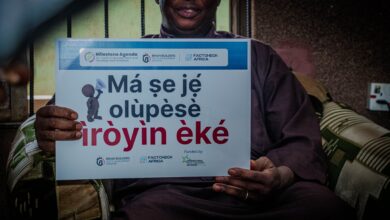
- Knowledge is power
- The Future Of Possible
- Hibs and Ross County fans on final
- Tip of the day: That man again
- Hibs and Ross County fans on final
- Spieth in danger of missing cut
By Oluwaseye Ogunsanya
The Democratic Republic of the Congo (DRC) held its general elections on Wednesday, December 20, 2023, for the president of the Republic and national and provincial assembly and municipal positions.
According to the International Foundation for Electoral Systems (IFES), this year’s election is the first since the 2018 elections when former President Joseph Kabila stepped down, and Felix Tshisekedi assumed the presidency, allowing for the first peaceful transition of power in DRC history. Since then, several amendments have been introduced to the electoral legal framework, including those that supported increased engagement of women, youth, persons with disabilities, and other marginalized groups across all aspects of the electoral process.
This year, President Felix Tshisekedi, who is seeking his second and final five-year term, has spent much of his time in office trying to gain legitimacy after a disputed 2018 election. Although voting has closed, more than 40 million voters, almost half the population in DRC and the diaspora, are expected to vote to fill 1,511 seats from a selection of more than 100,000 candidates.
It was said that the country had a history of disputed elections that could turn violent. At least 19 people were killed in election-related violence in the run-up to the vote, while 34 people at least had been killed, and 59 others wounded in protests related to the vote, according to the United Nations. This led to very little confidence among many Congolese in the country’s institutions, but this year’s general polls is an opportunity for the DRC to test the stability of its democratic processes.
What We Know So Far
Quoting a statement from the electoral commission, FRANCE 24 reported that voting stations that remained closed on Wednesday but permitted individuals to vote between 6 am and 5 pm on Thursday. This move prompted five opposition presidential candidates to demand a new election, citing the extension as unconstitutional.
The presidential and legislative elections on Wednesday faced disruptions due to delays in delivering election kits and malfunctioning equipment. Challenges included difficulties finding names on registers, and violence disrupted the polling process in various locations.
On Friday, the Independent National Electoral Commission (Céni) released partial results for the presidential election, focusing on the diaspora vote in South Africa, the United States, Canada, Belgium, and France. Only 5,300 of the expected 11,000 voters participated, with incumbent President Felix Tshisekedi securing 4,294 votes (80.99%), followed by opponent Moise Katumbi with 584 votes (11%).
Across all five foreign countries where the Democratic Republic of Congo tallied diaspora votes, President Felix Tshisekedi emerged as the winner, securing 80% of the vote, according to the electoral commission. However, the commission noted that the results from voting within the Congo by its 44 million registered voters would be published gradually by province, and on December 31, provisional results for the general election would be released.
Aljazeera reported that five opposition candidates, including former provincial Governor Moise Katumbi, contested the validity of the vote on Saturday, alleging “massive fraud.” Consequently, they called for a protest march against the results scheduled for this Wednesday.
Western governments have urged restraint amid concerns about potential violence following disputed election results. In a joint statement on Saturday, 12 European embassies and the Canadian embassy called for moderation.
Misinformation Spreads
FactCheck Africa noted that, aside from the allegations of fraud and various irregularities that marred the election, there has been a proliferation of unverified information circulating, particularly regarding the results.
A snapshot of the provisional results bearing the logo of the Regard Citoyen Electoral Observation Mission made the rounds over the weekend suggesting that a former oil executive and opposition candidate, Martin Fayulu is leading with 58% while the incumbent President Felix Tshisekedi is trailing with 18%.
The misinformation has however been debunked by the mission in a statement on its website and social media pages. According to the mission, the disinformation is strongly condemned.
“Regard Citoyen strongly condemns the disinformation campaign circulating on social networks concerning the publication of provisional results of the presidential election and opinion polls allegedly carried out by the organization”
Things To Note
It is important to note that CENI released a statement on Saturday confirming the collection of data and the publication of the results of the presidential election. The commission also condemned the acts of sabotage and violence perpetrated against its staff and equipment.
Things To Note
It is important to note that CENI released a statement on Saturday confirming the collection of data and the publication of the results of the presidential election. The commission also condemned the acts of sabotage and violence perpetrated against its staff and equipment.




Hi, this is a comment.
To get started with moderating, editing, and deleting comments, please visit the Comments screen in the dashboard.